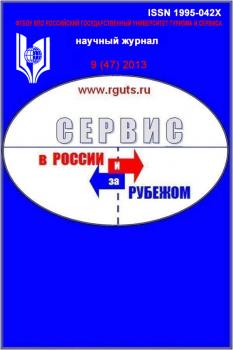A vast majority of English language teachers in Russia are not native speakers with no or inadequately little personal experience of living in an English-speaking country. What are the specifics of teaching in view of such an authenticity-lacking professional background, and how does the personality of a teacher reveal itself and is transformed in the course of teaching? How does language teaching affect self-identification? What should a teacher focus on attaining or, by contrast, avoiding in view of the above-raised issues? A significant number of foreign language teachers who are not native speakers demonstrate a clear non-target-language-specific accent, thus, either inadvertently or purposefully, revealing and asserting their national identity. The author of the article aims at identifying the problems that the teacher’s explicit target-language-alien accent may cause to both learners and teachers, and the root causes of the accent resilience.
foreign language, national accent, self-identification
Проблема этнической идентичности в области обучения иностранному языку и изучения иностранного языка достаточно серьёзна с точки зрения использования определённых черт родного языка в рамках международного языкового права. Вот почему связь между использованием языка и этнической принадлежностью вызывает острые дискуссии.
Некоторые исследователи утверждают, что родной язык не является важной составляющей личностной идентичности. В противоположность этому многими высказывается точка зрения, что родной язык детерминирует процесс становления личностной национальной идентичности в процессе обучения иностранным языкам, проводимом преподавателями иностранного языка, не являющимися носителями этого языка. В этой статье дискуссия по поводу личности преподавателя английского языка, для которого английский язык не является родным, будет проведена относительно самого процесса преподавания и того, какую роль в этом процессе играет родной язык.
1. Bernshtein, S.I. Voprosy fonetiki i obuchenie proiznosheniiu [Issues of phonetics and foreign pronunciation teaching]. Moscow: MGU Publ., 1975. - p.67.
2. Bernshtein, S.I. Osnovnye poniatiia fonologii [Fundamental concepts of phonology]. Vosprosy iazykoznaniia [Theory of language: issues and questions]. - 1962. - № 5. - pp. 62-80.
3. Trubetskoi, N.S. Izbrannye trudy po filologii [Selected works on philology]. Moscow: Progress Publ., 1987. - p560.
4. Appel, R. and P. Muysken. (2006). Language contact and bilingualism. Amsterdam University Press.
5. Avery, P. and Ehrlish, S. (1987). TESL: Teaching of pronunciation: An introduction for teachers of English as a second language. Toronto: Queen’s Printer.
6. Baxter, J. (1991). How should I speak English- Americanly, or internationally. In Adam Brown (Ed.) Teaching English Pronunciation. London: MacMillan Publishers Limited, pp-53-70.
7. Brown, D. H. (2006). Principles of language learning and teaching. Pearson Education ESL.
8. Eastman, C. (1990). Aspects of language and culture (2nd Ed.) Washington: Chandler and Sharp Publishers Inc.
9. Liebkind, K. (1999) Social psychology. In J. A Fishman (Ed.), Language and ethnic identity, pp 141-151. Oxford: Oxford University Press.
10. Lado, R. (1964). Language teaching: A scientific approach. New York: MacGrow-Hill.
11. Quirk, R., and G. Stein. (1990). English in use. London: Longman.
12. Rivers, Wilga. (1981). Teaching foreign language skills. Chicago: University of Chicago Press.
13. Roberts, L. R. and Penfield, W. (1960). Speech and brain mechanisms. London: Cambridge University Press.
14. Spolsky, Bernard. (1999). Second language learning. In language and ethnic identity (Ed.) by J. A. Fishman. Oxford: Oxford University Press.
15. Ur, P. (2012). A course in language teaching: Practice and theory. Cambridge: Cambridge University Press.
16. Interferentsiia (lingvistika) [Linguistic interference]. Retrieved on January 16, 2014 from: http://ru.wikipedia.org/wiki/.





